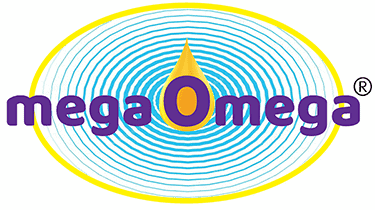
Omega-3 DHA for pregnancy and newborns
Omega-3 is an essential nutrient and a form of “good fat” that has a wide range of health benefits for pregnant women, postnatal mothers, and infants.
The most beneficial form of omega-3, docosahexaenoic acid (DHA), helps with brain development and cognitive function during early childhood, can reduce inflammation, and may help with symptoms of postpartum depression.
We’ll explore how DHA can benefit you in more detail below.
What are omega-3 fatty acids?
Omega-3 fatty acids are a type of polyunsaturated fat. These types of fats are essential to prenatal health because they can’t be produced by the body, so must be obtained from food or supplements. Omega-3 fatty acids are a vital part of the prenatal diet because they’re used in making hormones and cell membranes. They also help with prenatal brain development and function, particularly in areas that affect learning and memory.
What’s the difference between ALA, EPA and DHA omega-3s?
There are three main omega-3 fatty acids:
- alpha-linolenic acid (ALA)
- eicosapentaenoic acid (EPA)
- docosahexaenoic acid (DHA)
ALA is found in plants such as flaxseeds, walnuts, and soybeans. ALA needs to be converted to EPA and DHA before the body can use it. Not only does it take time for your body to convert ALA into EPA and DHA, but your body can only use about 2-3% of the ALA you consume.
EPA is commonly found in fatty fish. It’s an active anti-inflammatory and is a precursor to DHA. EPA can be taken as a supplement alone or combined with DHA for a full prenatal omega-3 formula.
DHA is a long-chain polyunsaturated fatty acid that our bodies cannot produce on their own; we must get it from food or supplements, such as fish or algae oil. DHA is the main form of omega-3 used by the body during prenatal development.
Why is omega-3 DHA important for pregnant women?
During pregnancy, DHA is particularly important for the formation of cell membranes in the placenta, brain, retina and other tissues. The developing child has a high demand for DHA during critical periods throughout gestation. These periods of high demand occur as gestation progresses and the child’s brain grows rapidly.
Breastfeeding mothers should consume omega-3s to support infant development and cognitive function, because a mother’s body requires larger amounts of DHA during pregnancy to send to her unborn baby. The baby receives all the DHA it needs before birth through the placenta and then begins to accumulate its own supplies after birth through breast milk.
Why is omega-3 DHA important for postnatal mothers?
After childbirth, DHA can help to reduce inflammation and promote mood balance by reducing stress hormone levels in the body. Research suggests that DHA can help with mood disorders such as postpartum depression that can sometimes be exacerbated by hormonal changes associated with childbirth.
Studies have even suggested that a supplemented DHA intake may also reduce the risk of developing maternal depression during pregnancy and postnatal period.
Omega-3 fatty acids have also been shown to improve cognitive function when supplemented into diets during pregnancy and breastfeeding, which is beneficial for infants as they help to promote early brain development.
Why is omega-3 DHA important for infants?
Omega-3 fatty acids present in algae oil are frequently referred to as “brain food” or “smart fats” because they contribute directly to the health of the neurons responsible for thinking, memory processing, learning ability & emotional well being.
DHA supports healthy vision development as well as brain function during early life stages. Research suggests DHA can help improve mental performance which leads to increased learning ability across developmental milestones like language acquisition, visual acuity, reading comprehension skills & attention span.
What are some sources of DHA?
While there are a variety of sources of omega-3s, they’re not all created equal! If you’re pregnant or breastfeeding it’s important that your diet includes DHA which can be readily absorbed by the body.
Are flaxseeds a good source of DHA?
Flax seeds contain omega-3s but mainly in the form of ALA which needs to be converted to DHA by the body in order to obtain any benefit. The process is tedious and the results are negligible.
Is fatty fish a good source of DHA?
Fatty fish on the other hand is a source of essential DHA, however it also comes with a list of toxins and negative implications on the environment.
While wild salmon is a natural source of omega-3s it’s important to know that many fish species have been contaminated with chemicals and toxins from pollution, farming practices and industrial waste. Further, they are not considered a sustainable source of DHA due to pollution and issues associated with commercial fishing.
Is fish oil a good source of DHA?
While fish oil may be a popular source of DHA it’s important to remember that their capsules are not always sustainably sourced, can be expensive and have been found to contain contaminants from the ocean.
Many fish oil supplements have also received criticism in recent years for being wastage products from factory fish farming, which are high in contaminants like mercury, PCBs, dioxins & pesticides.
Is algae oil a good source of DHA?
Arguably the best source of DHA is vegan friendly megaOmega® algae oil which research suggests is the highest concentrate and most potent source of DHA in the world!
Why is algae oil such a great source of DHA?
Algae oil contains a super high level of DHA which is the most important omega-3 fatty acid for prenatal and postnatal health. It’s also the only vegan source of DHA on the market. megaOmega algae oil is sourced from cultivated wild strain algae using a unique, patented, water extraction process so, unlike others, it does not negatively impact marine life or contribute to pollution problems. megaOmega algae oil, in particular, also is not sourced from marine farming and does not interfere with the ecological balance of the ocean.
Is algae oil safe for pregnant and breastfeeding women?
megaOmega® algae oil is safe, natural and highly nutritious. It does not contain mercury or contaminants common to fish products. Research suggests that there are no harmful risks associated with using megaOmega® algae oil during pregnancy or breastfeeding. In fact, some studies suggest that dietary supplementation with algae oil can significantly reduce postpartum depression symptoms in new mothers.
Is algae oil safe for infants?
Due to its purity, megaOmega® algae oil is safe for infants. It does not contain toxins or heavy metals which can be found in fish and fish oil. The high concentration of DHA in megaOmega® algae oil is particularly beneficial during lactation periods because it may increase blood levels of omega-3 fatty acids which may help protect against postnatal depression, improve visual acuity during infant development and promote healthy brain function.
In what forms can I consume algae oil?
megaOmega® algae oil is available in algae-based softgels and drinkable algae oil which you can add to smoothies or juices.
megaOmega® algae oil softgels are easy to take as an on the go DHA supplement, and are also gluten free, suitable for vegetarians and vegans and are free from artificial colours or preservatives. The capsules are made of corn starch (non GMO/gluten free), carrageenan (from edible seaweed), vegetable glycerine, and purified water.
The megaOmega® algae oil liquid form contains the same benefits as algae oil softgels but can be added into smoothies or juices for easy daily consumption. It provides an innovative way to integrate algae oil supplementation into your lifestyle while avoiding the negative side effects associated with fish oil consumption.
Are there any side effects associated with algae oil?
Pregnant women can enjoy megaOmega’s algae oil as a beneficial omega-3 fatty acid supplement without any fear of potential harm to their baby. Additionally, megaOmega® algae oil is 100% mercury-free, which means no harmful toxins are transferred across the placenta during pregnancy or into breast milk during breastfeeding periods.
Additionally, the algae used to produce megaOmega® algae oil is a sustainably cultivated wild strain Chromista micro algae Schizochytrium sp. which then, through a patented water extraction process, produces the algae oil.
How much DHA do pregnant women need?
If you want to make sure that your baby has enough DHA while they are still in the womb, it is important to make sure that you get enough yourself! Research suggests that pregnant women who consume a higher amount of DHA while they are pregnant tend to have children with better eye development and brain function.
It’s important to first build a baseline level of DHA in your body as well as your baby’s body, then you can lower the dose you take to maintain the level. Keep in mind that you can’t have too much DHA, whatever your body doesn’t convert just becomes a waste product.
Recommended serve of megaOmega® algae oil for BUILDING your DHA level
ADULT
Liquid: 2ml (1 full dropper) per day = 1000mg DHA for minimum 3 months
Softgels: 3 softgels per day = 1050mg DHA for minimum 3 months
CHILD
Liquid: 1ml (½ dropper) per day = 500mg DHA for minimum 3 months
Softgels: 2 softgels per day = 700mg DHA for minimum 3 months (under adult supervision)
Recommended serve of megaOmega® algae oil for MAINTAINING a necessary DHA level
ADULT
Liquid: 1-1.5ml (½ – ¾ dropper) per day = 500-750mg DHA
Softgels: 2 softgels per day = 700mg DHA
CHILD
Liquid: 0.5-1ml (¼ – ½ dropper) per day = 250-500mg DHA
Softgels: 1 softgel per day = 350mg DHA (under adult supervision)
Recommended serve of megaOmega® algae oil for Babies
BABIES (Newborn to 2 years): 0.5ml per day = 250mg DHA
Tips for taking algae oil supplements
Algae oil is best taken with food, preferably at meal times. This ensures maximum absorption of omega-3 fatty acids during our digestive process which will be more effective for building and maintaining necessary DHA levels. Algae oil can be easily added to drinks such as juice or smoothies for a quick & nutritious boost!
In the end, it’s important to note that quality matters in all supplements you take during pregnancy so it’s critical that you use a high-quality product like megaOmega® which is free from toxins and contaminants.
In conclusion
Omega-3 DHA has been shown to improve cognitive function when supplemented into diets during pregnancy and breastfeeding, which is beneficial for children as omega-3 fatty acids help to promote early brain development.
Research suggests that vegan algae oil supplements provide both mother and baby with the necessary volumes of omega-3 DHA without negatively impacting the environment.
If you’re pregnant or nursing it’s important that your diet includes omega-3 DHA to help reduce inflammation in the body while promoting mood balance by reducing stress hormone levels.


